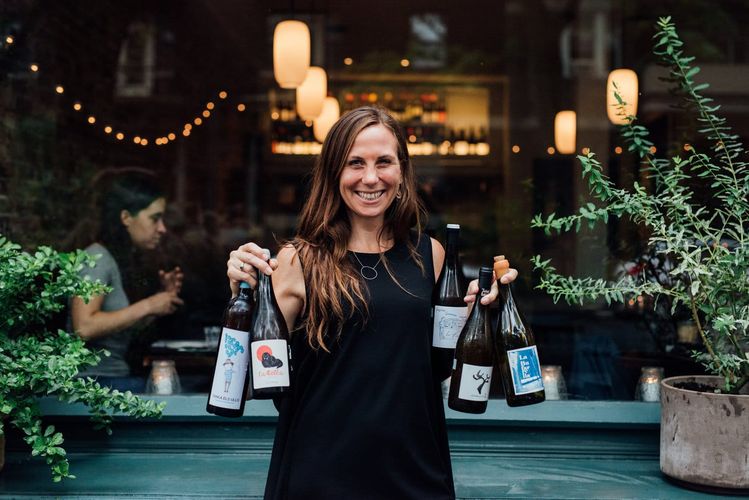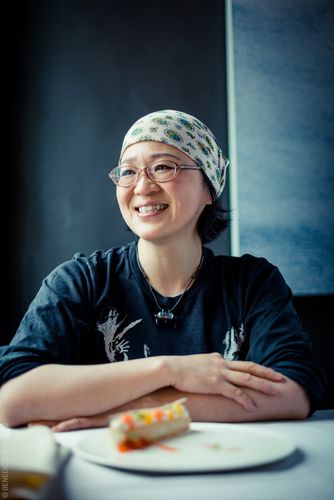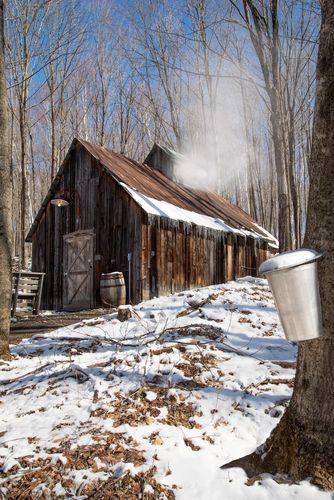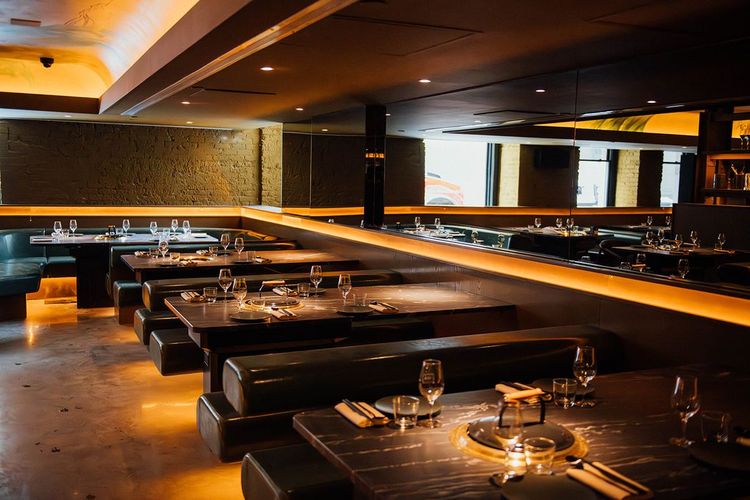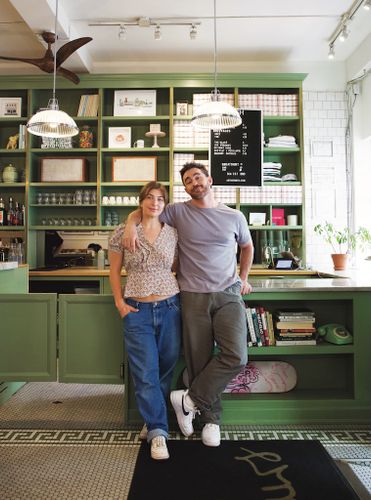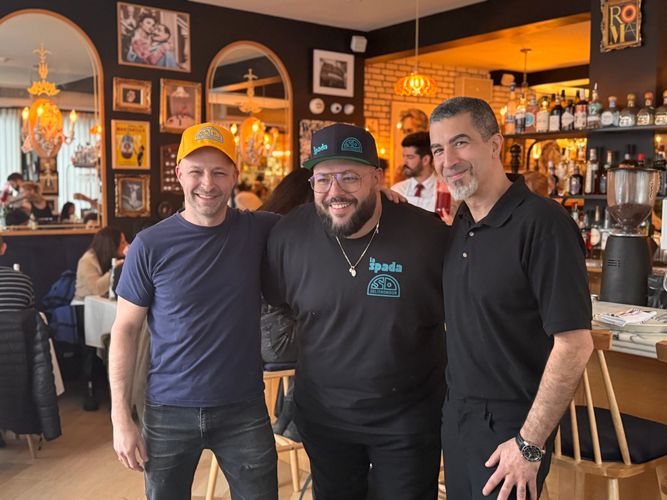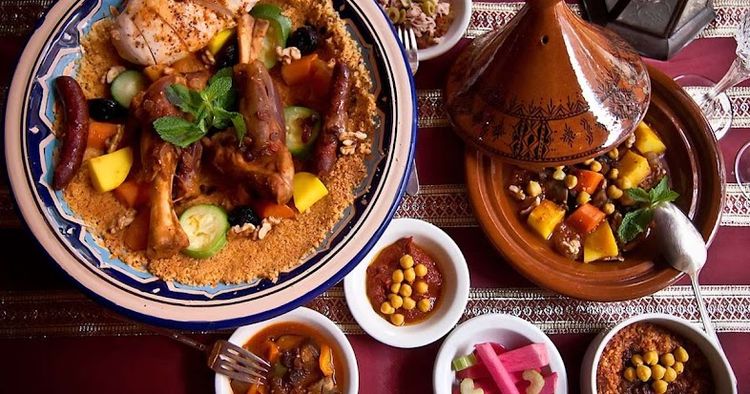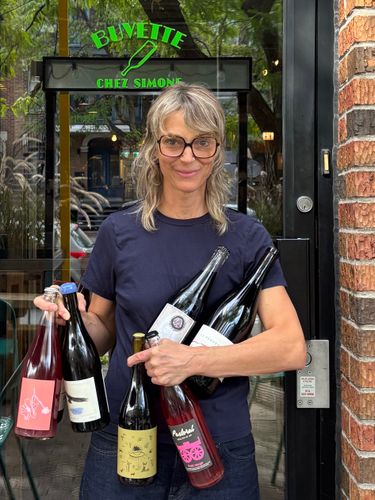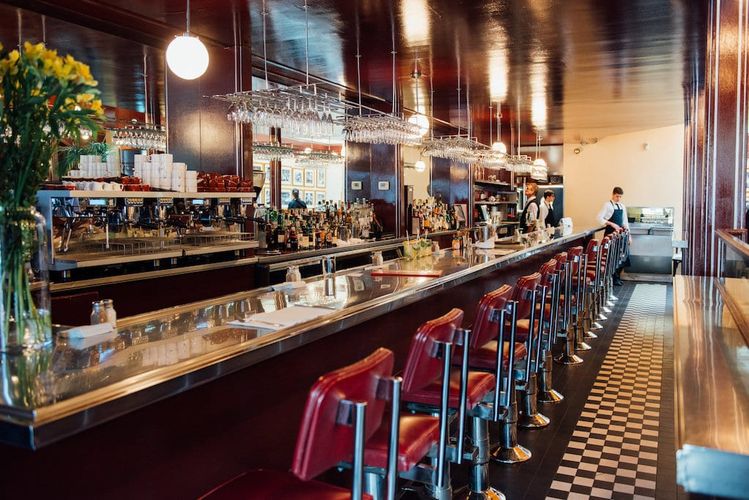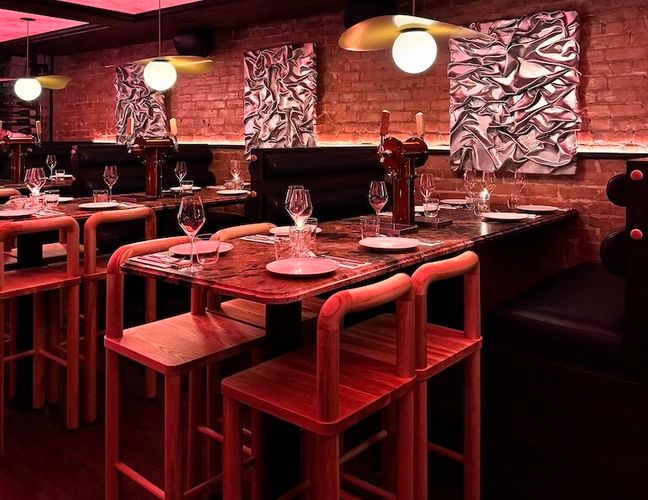
A conversation about the work of a food critic with Jean-Philippe Tastet
From the love of the written word, to the love of the restaurant industry, to a thousand and one encounters over time, we had a conversation with the food critic Jean-Philippe Tastet over an espresso.
It’s 8 o’clock in the morning and he has a coffee in his hand, made from his JURA machine that he wouldn’t trade for anything in the world.
Because if there’s one thing the critic has learned from his career, it’s that consistency of quality surpasses everything else, in every aspect of his life. Whether it’s his first coffee in the morning or the consistency of quality on his plate at the restaurant, Jean-Philippe knows what he’s talking about.
Jean-Philippe Tastet takes us behind the scenes of the restaurant industry and gives us his perspective with the same modesty and accuracy he has maintained throughout his career.
What is your first memory of cooking?
I was raised in a very small village in the south of France, and I remember following my grandma around when she was cooking; I was really curious. I thought, this is weird, the rabbit we caught two hours ago, it’s on our plate now, and it’s delicious. Immediately I became interested in the reason behind it, and very soon after I fell for cooking.
You have to know that in the deepest part of France, about fifty years ago, the word gastronomy did not exist; it was popular cooking. Gastronomy existed in Lyon and in two or three places in France, but it didn’t exist in the country. In the nearest town, Cahors, a restaurant was a French restaurant, not Italian, not Japanese, not anything but French. It was only much later that international gastronomy developed.
How did you become a critic?
I went to “normal school” to become an elementary school teacher and I went to work in New Orleans, Louisiana; then I went to Tehran at the time of the revolution. I left Iran when the war with Iraq started and landed in Toronto, Ontario. There, I taught through a government commission called French Language Services. I mostly taught senior officials. I came to Montreal after meeting Élise’s mother (in Toronto) who was studying here, and I started to do translations for Le Devoir.
My first contact with the kitchen came later. For a long time, I accompanied my friend Josée Blanchette who was a restaurant critic for Le Devoir and when she stopped, she said to me: “I think you would like this”. I answered her laughing: “No, I like going to the restaurant with you because you hardly eat anything anymore, so I eat my plate, I eat yours, you pay, we leave the restaurant and I don’t have to do anything. But she still gave my name to the director of Le Devoir who called me and I started writing in the paper from that moment on. I stayed with them for about twenty years, 25 years, with a break of maybe ten years during which I took over the management of something that existed at the time called the Guide Resto Voir.
Honestly, I’ve always loved cooking, and I think I’ve developed a certain taste and a certain good judgment for the work of a restaurant; both in the kitchen and in the dining room. That doesn’t mean I understood everything, far from it, but I understood some things. I’ve always admired the work of these people.
My career as a critic is first and foremost a love of French, and then a love of cooking that has developed; but it is above all a story of encounters.
What do you like most about the restaurant industry?
Many things, in fact. I like the passion of the people who are in the kitchen. In the dining room, there are some of course, but less; it is a job that is a bit overused. People work in service in restaurants because they earn a lot of money, but there are few people who are there because of a real love of the job. However, there are exceptions and there are people who are dedicated, passionate, and who are always trying to offer a better service. I am thinking of Fanny Alaizeau at h3 who I see evolving in her profession and who today offers exceptional service after having followed her sommelier course at the ITHQ; an example to follow.
I really like the passion of the people in the kitchen, I really like the inventiveness. It’s a kind of gift of self. Feeding someone is an act of generosity and I find that people are super inventive and we all agree that we don’t live in a climate here that lends itself to creativity all year long. A chef who lives in Perpignan and who cooks well, who proposes interesting things in February… Ok, bravo, it’s great, we appreciate it and I think that everyone likes it, but the chef who, here, in February manages to make interesting dishes. A thousand times bravo!
What do you think the difference is between French and Quebecois gastronomy?
I would say the casualness. However! Relaxation doesn’t mean detachment, it just means that people don’t take things too seriously. They are very diligent, very meticulous. Like all people who are passionate, they give themselves to their task, but they are much more relaxed, and it seems to me that there are fewer barriers. A gratin dauphinois in France, if the recipe says A, B, C, D, you follow it to the letter. If you change it, it’s not a gratin dauphinois anymore, they say “a gratin dauphinois my way”.
Any encounters that have had a profound effect on your career?
I remember the encounters with big names. I remember sharing a meal with Monsieur Bocuse, and it was very impressive. There are meetings with chefs that are impressive, because these people mark you with their personality. I remember discussions with Alain Ducasse that really struck me, same thing with the great chefs Pierre Gagnaire and Joël Robuchon; especially with French chefs because it’s easier for me to have a very deep conversation with French people. But there are also many small establishments that stand out. On Parc Avenue, for example, there is a very small restaurant called Barcola, which is one of my favourite places. The chef works very well and his wife offers warm service in the dining room. Fabrizio, the chef, is a jazz lover, there’s always great music, they don’t mess around. It’s like home, only better.
There are others; very impressive people like David McMillan and Frédéric Morin who have built their empire in Little Burgundy and made it a beautiful place. Many other people like that, young people who are already dazzling.
I also really like the emergence of women chefs. You have to go back 50 years, it didn’t exist. There was the Brazier mother, in Lyon, in France, but in Quebec I don’t remember her. Anne Desjardins was a pioneer, but it was almost exclusively a man’s job. Nowadays, there are many female chefs who manage their kitchens extremely well and who do an extraordinary job.
Did you have a mentor or a person who deeply influenced you?
Not one person in particular, I would say that I learned a lot by asking questions, by being curious, by going into the kitchen. It’s always related to people’s curiosity. You always have to dig. Recently, I went to Yoann Van Den Berg’s at Pastel, and to Stéphane Modat’s new restaurant Le Clan in Quebec City. In both places, it was phenomenal how the plates were constructed. I never get tired of asking “How did you manage to do that?”
What makes a good chef and what makes a good restaurant?
First of all, a good chef is above all a good cook… but a good cook is not necessarily a very good chef. A good chef knows how to manage a team and he leads the dance with tact. For me a good chef is a good cook and a good person.
I remember going to a restaurant with our children when they were younger, and we sat at the chef’s table in the kitchen. When we got home, I asked them what impressed them the most. They said, “we sat at the table for four hours and no one raised their voice in the kitchen.” Now that’s really good management. A good restaurant starts from the kitchen and how the impeccable work of the kitchen is served because there has to be a balance between the creations of the kitchen and the work that is done in front. It’s a package deal. It’s the people on duty who know the menu, who know what to serve. Wine service is becoming more and more important, so it’s nice to have someone who knows what he’s talking about, if not a sommelier.
An example of a restaurant that defies all competition in its category is L’Express, which has provided the same quality of cuisine and service since it opened. With the departure of Joël Chapoulie, the great chef who held the reins of L’Express for decades, the arrival of the new chef, who is no longer new, Jean-François Vachon, was an interesting turning point because he was able to understand that his creativity at L’Express would be to not be creative because people come to L’Express with confidence to eat the same dishes. From January 1 to December 31, if you want to go and eat a veal liver with tarragon, it will always be the same. Quality consistency!
After that, there are more creative restaurants that do an exceptional job as well, whether it’s Pastel in Montreal or Le Clan in Quebec City, there are many others…
Your best and worst work experience?
My best experience was to keep the same interest and kindness towards all these people who work very hard in the restaurant industry until the last review I published in Le Devoir.
The worst, I would say, is a series of bad experiences. Writing about Asian cuisine is very difficult for me because it is a cuisine that I don’t know at all. So the first reviews I wrote, I spent hours and hours on it trying to write, reading, calling people, etc. Too much work, it’s not fun.
How would you describe your career as a critic?
A work of pleasure. Because the word work comes before the word pleasure. It’s a lot of work, a lot of research. People don’t suspect the work that’s behind it.
I’ve never had any pleasure in writing a bad review, it’s not pleasant, but honestly in 25 years in the business, I can count the bad reviews on the fingers of one hand. I think that it is a job where you have to be benevolent.
Jean-Philippe Tastet has been immersed in the restaurant industry for 25 years now and has become an expert in the domain. The taste for good things that he has honed and nurtured over the years has extended to coffee, a small pleasure in his daily life. According to him, the JURA machines from Edika are comparable to no other on the market.
Sharing a morning ritual with Jean-Philippe Tastet
Where did your love for coffee come from?
In my childhood, with my grandfather. I always saw him drinking coffee, so I guess it came naturally to me afterwards.
When I first moved to Montreal, I loved going to the cafe around the corner to get my beans. The owner, Asped Istanboulian, would let me taste all kinds of roasted coffees. I like these exchanges, the human relationship, and it is thanks to him that I got this JURA machine which has been with me faithfully for, I think, a dozen years.
What is your favourite thing about the JURA machines from Edika?
The pleasure of tasting different roasts, different origins, and this is what JURA machines allow. In my opinion, this is one of their best qualities, they are machines that allow discoveries. They have many other qualities; you press the button and the coffee is ready, it’s extraordinary, a bit like Switzerland.
The machines are good, but the service is just as important, and the service offered by the people at Edika is to be underlined. Reception, follow-up, maintenance of the machines, clarity of the staff’s explanations, everything is very well done. You have to see the technicians working on the equipment behind the glass window at the back of the reception counter, it’s great, you’d think you were in a Formula 1 pit.
Written by Élise Tastet

